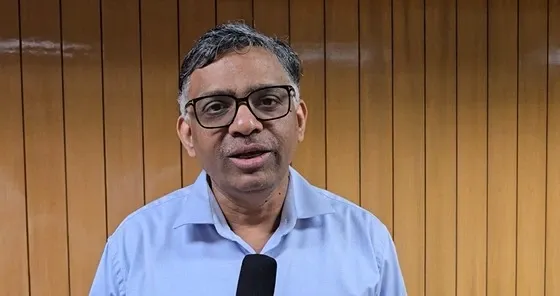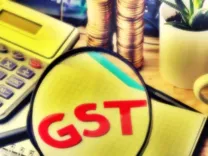Is the GST 2.0 Reform a Game Changer for Aatmanirbhar Bharat?

Synopsis
Key Takeaways
- Dairy traders in Maharashtra and Gujarat welcome GST 2.0 reforms.
- Reforms aim to reduce financial burden on consumers.
- New tax structure introduces lower rates for essential goods.
- Expected boost in economic activity during festive season.
- Government's focus on public welfare through economic reforms.
Nashik, Sep 4 (NationPress) Dairy traders in Maharashtra's Nashik and Gujarat expressed their enthusiasm on Thursday regarding the Central Government's GST 2.0 reforms, labeling it a crucial stride towards economic relief and advancement. They emphasized that this initiative aligns perfectly with Prime Minister Modi's vision of an 'Aatmanirbhar Bharat'.
In an interview with IANS, Ramesh Narayan Pagar, a well-known figure in the milk and cheese industry from Nashik, commended the reform as a much-needed "gift from the government" just in time for the festive season.
Pagar mentioned, “This reform will be advantageous for both everyday citizens and traders alike. With the reduction in tax rates, essential goods will become more accessible to the less fortunate and middle-class families, alleviating their financial stress. The upcoming festivities, such as Navratri and Diwali, are likely to boost business, which in turn will benefit the broader economy.”
He conveyed appreciation to the Central Government for focusing on public welfare and assisting businesses through these reforms.
Similarly, Jayen Mehta, the Managing Director of the Gujarat Cooperative Milk Marketing Federation, also praised the initiative.
“On behalf of all dairy traders, I extend my gratitude to PM Modi and the Finance Minister. The tax reduction is uplifting news for both producers and consumers. This will enhance consumption and widen the market for producers,” he stated.
Mehta added, “India stands as the world's top milk-producing nation. This reform is a significant milestone towards 'Aatmanirbhar Bharat' and the overall prosperity of our country. We, in the dairy sector, are sincerely thankful.”
Following the GST Council's approval of transformative changes to India's indirect tax framework, numerous everyday items will see price reductions starting September 22.
The new tax configuration, adopted on Wednesday, introduces two primary slabs at 5% and 18%, along with a hefty 40% for luxury and sin goods.
For the average individual, this adjustment translates to having more disposable income, which the government anticipates will invigorate the economy significantly.
A wide array of goods and services, from groceries and fertilizers to footwear and renewable energy, are set to become more budget-friendly. Products that were previously taxed at 12% and 28% will largely shift to these two lower slabs, making a diverse selection of items more affordable.








